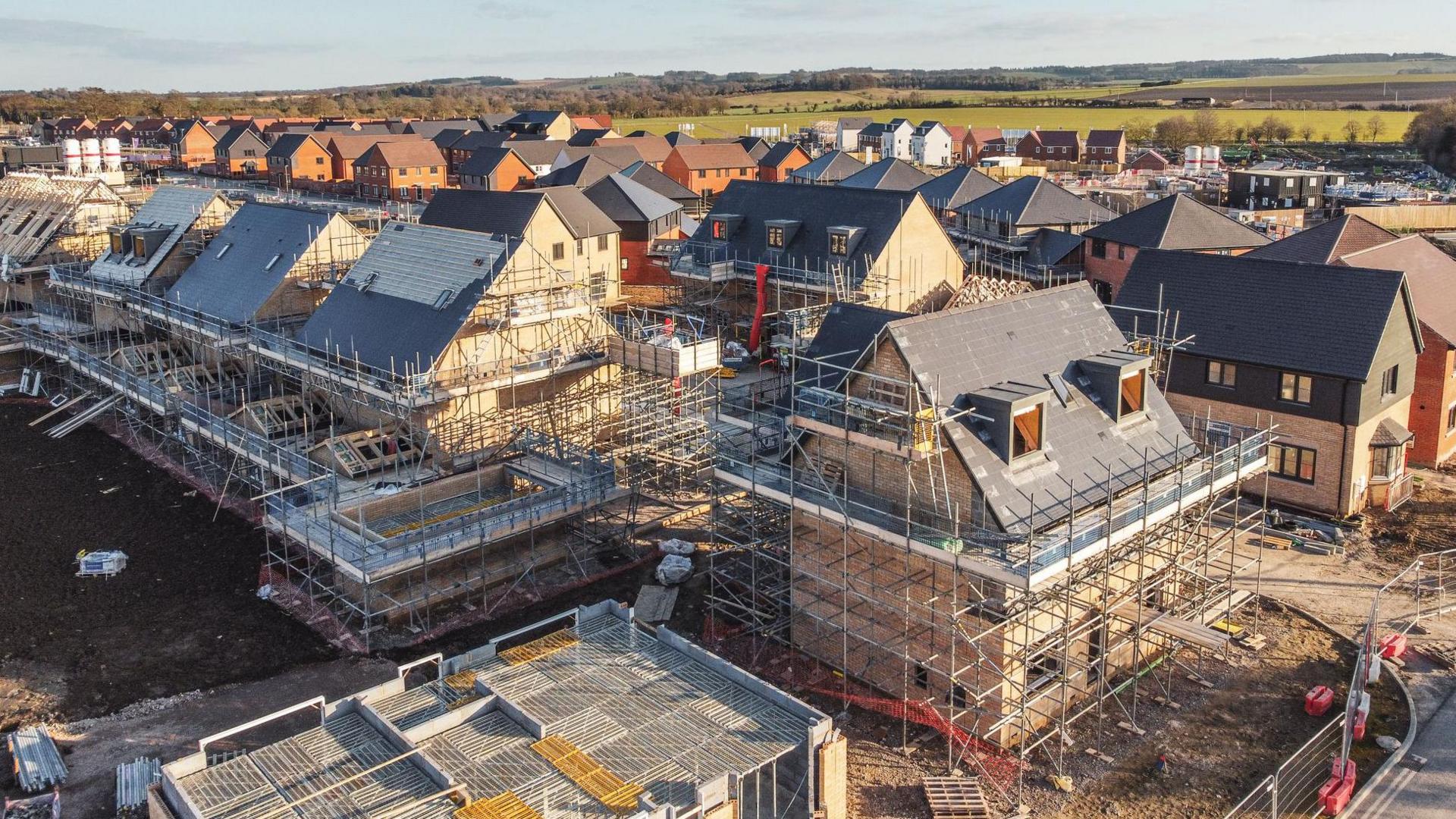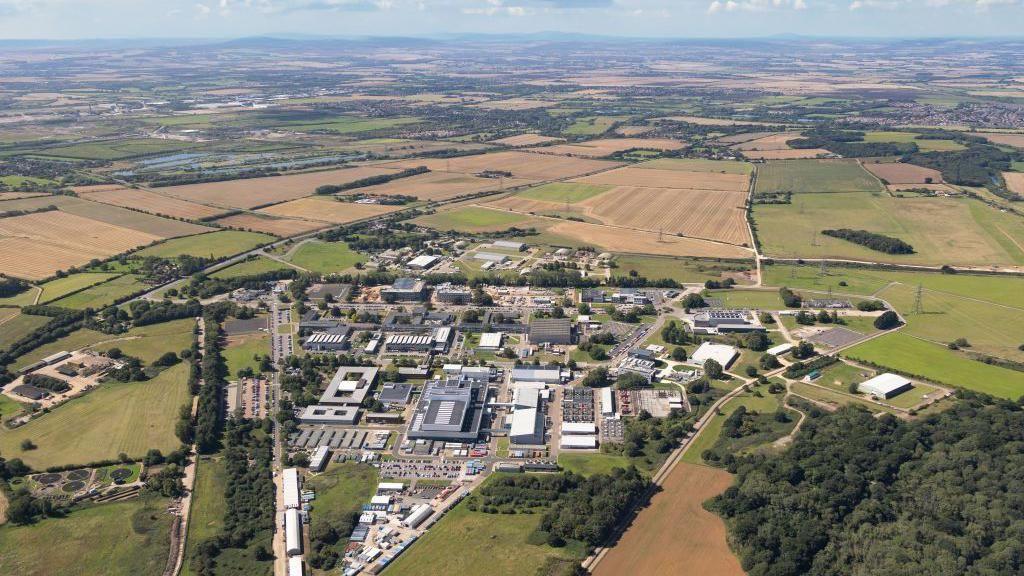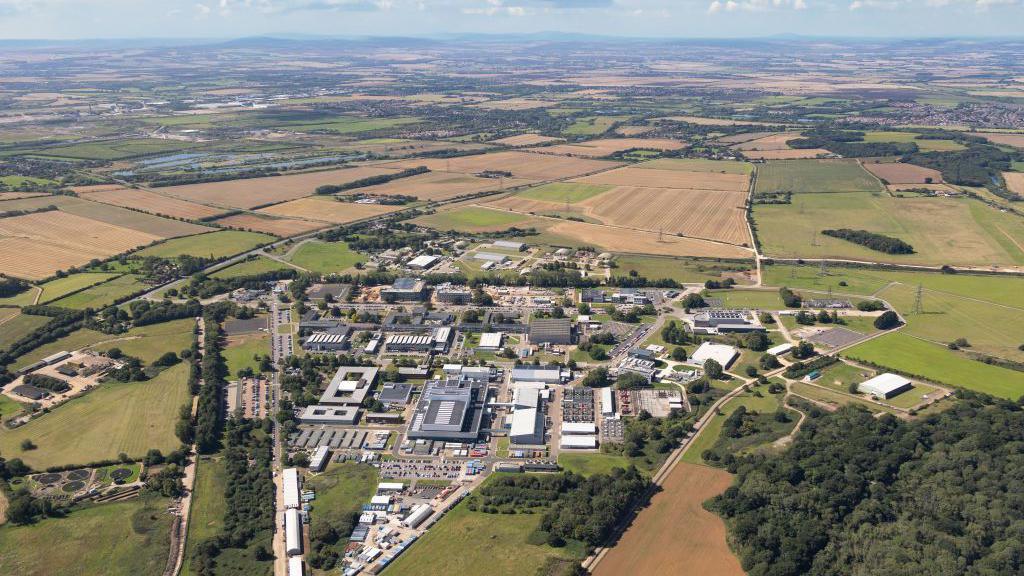Are targets putting Oxfordshire's green belt at risk?

Campaigners are voicing environmental concerns about some of the housebuilding in Oxfordshire
- Published
The key message we heard throughout Labour’s election campaign this summer was to build more homes – one and a half million in five years to be exact.
Arguably this pledge played a key role in helping the party win the election, and marked the return of a Labour government after 14 years under the Conservatives.
But now the question is – how achievable are the new government’s housebuilding targets? And what will the cost be?
It is not just economic sacrifices that need to be considered in the development process; campaigners are voicing environmental concerns.
There are worries that the green belt – vast green spaces you see mostly in the countryside – might be at risk, as the government faces pressure to meet its ambitious housing targets.
'Too subjective'
"It’s a piece of land that’s adjacent to our towns and cities and is there to protect it from future development," says Lisa Warne, CEO of Campaign to Protect Rural England (CPRE) Oxfordshire.
"It can help us mitigate against the effects of climate change, boost biodiversity, alleviate flood risk, and it also helps increase our food security because 65% of our land is agricultural land."
CPRE says the definition of the grey belt also needs more clarity.
"It's not actually a belt of land, it's pockets of land within the green belt that the government would like us to see developed," says Lisa.
"It's too subjective and open to interpretation. So what we don't want is it meaning one thing for our colleagues in Manchester and another thing in Oxford."

About 3,500 homes are expected to be built adjacent to Culham Science Centre
Green councillor Dr Pete Sudbury is the deputy leader of Oxfordshire County Council, with responsibility for climate change, environment, and future generations.
"Ten years ago, one in 10 species in Britain was endangered," he says.
"Last year, it was up to one in six.
"So, yeah, how much of our wildlife are we prepared to wipe out?"
He adds: "The UK is already one of the most nature-depleted countries on Earth. So are we prepared to turn it into a desert with stinking sewers as rivers?"
"The local plans released land from the green belt and we are working directly on at least two projects in the green belt," Peter Canavan, partner at Carter Jonas in Oxford, explains.
"One up near Kidlington [and] one south near Culham at the science centre where we're going to be seeking planning consent for 3,500 houses.
"There are bits of land that will need to be protected but there are other pieces of land that are perhaps less valuable."
Grow cities 'upwards'
CPRE Oxfordshire and Dr Sudbury argue that there are other areas of land that should be prioritised ahead of the green belts.
"The government could hit two thirds of its target just by making sure that councils have the power to ensure that builders built where they got planning permission," the councillor says.
"There are a million houses with planning permission that haven't been built. Build those first."
Christopher Smowton, a Liberal Democrat councillor for Headington, believes the "very best that we can do is to grow our cities upwards to some extent".
He says: "There’s definitely a course that could be taken where that housing growth didn’t happen, but the regrettable consequence of that would be that places like Oxford, and other places where the house prices are unusually high, would just really struggle to staff key industries and key services."
A spokesperson for the Ministry of Housing, Communities and Local Government says: "We are in a housing crisis so all areas of the country, including Oxford, must play their part so we can deliver one point five million homes in this Parliament.
"Our ambitious plans to provide the housing we need will not come at the expense of the environment and we will take a brown field first approach to building so sites which people are desperate to see used will be developed first."
Get in touch
Do you have a story BBC Oxfordshire should cover?
You can follow BBC Oxfordshire on Facebook, external, X (Twitter), external, or Instagram, external.
- Published21 September 2024
